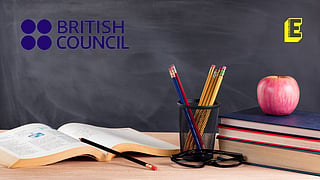
From the moment we step into a classroom, we are shaped by the subjects we study and those who teach them. In today’s rapidly evolving world, the role of a teacher has transformed from a knowledge provider to a guide, mentor, and a facilitator. Gone are the days when teaching was confined to textbooks and chalkboards.
Today, education is about crafting experiences, nurturing curiosity, and preparing students for a world that demands consistent change.
The educational landscape today offers a range of opportunities for students, from artificial intelligence to quantum computing, sustainable development to blockchain technology and many more.
With a variety of options available, comes an essential need for teachers - the need to become perpetual learners themselves.
To guide students through these cutting-edge fields, educators must first be open to discussion and discourse while as well as give and receive feedback, continually expanding their own understanding of a changing world and build engaging environments where priority is given to 21st century skills such as collaboration, critical-thinking, creativity all the while being inclusive in its practice.
This Teachers' Day, British Council highlights the skills that every modern-day teacher should work on to lead the way in education and leave an indelible impact:
A thorough understanding of the subject is the cornerstone of effective teaching and mastering it can transform classrooms into thriving centres of learning. But today, it’s about more than just knowing your subject — it's about bringing it to life.
Comprehensive programmes like the Cambridge Certificate in English Language Teaching to Adults (CELTA) offered by the British Council, don’t just certify teachers who want to teach English; they empower them to transform any classroom into a hub of dynamic learning, whether they’re teaching in their hometown or halfway across the globe.
Equipping teachers with practical knowledge and effective English teaching skills, the CELTA qualification is well recognised globally, opening doors to a world full of possibilities.
Imagine a classroom where learning has no bounds, and Artificial Intelligence (AI) tailors lessons to each student’s unique learning style, pace, and interests.
This isn’t a distant dream — it’s the future of education.
According to a Forbes survey, 60% of educators are already integrating AI to create an adaptive and personalised environment that creates a holistic world for the students.
By embracing technology, teachers can now inspire their students in ways that were once unimaginable, making learning not just effective, but exhilarating.
It is important for teachers of today to be a maestro — orchestrating an environment where learning is a symphony. Effective classroom management is the key, and when done right, it turns a classroom into a space where every student feels valued and engaged.
Beyond management, when learning is fun and interactive, students are more likely to retain information and develop love for the subject. This holistic approach to classroom facilitation ensures that all learners can thrive, regardless of their background or learning style.
This comes more naturally for teachers who regularly practice student-centred approaches to teaching.
As Benjamin Franklin rightly said, “Tell me and I forget, teach me and I may remember, involve me and I learn.”
True learning goes far beyond memorising facts or rules of a language; it is about engaging with students and creating more meaningful educational experiences for them.
Studies show that when students are involved in hands-on, cross-curricular projects, they don’t just learn — they connect, empathise, and grow.
Promoting collaboration and discussion in the classroom allows students to engage with diverse perspectives, enhancing both critical thinking and emotional intelligence.
By fostering self-awareness and meaningful dialogue, teachers can create a more holistic learning environment that empowers students to apply their knowledge in diverse, real-world and also promote learner autonomy as well as a sense of progress through self-reflection and peer assessment.
